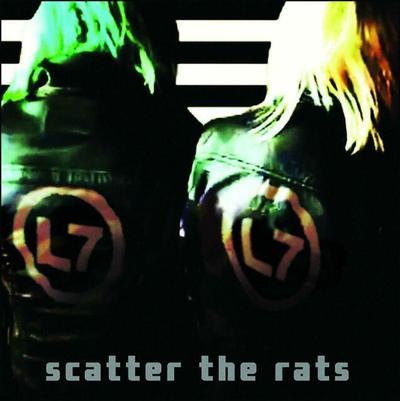Socrates wondered what good is. I wonder too, influenced by recent exposures to L7's new "Scatter the Rats" album, to Glenn Gould's 1955 and 1981 recordings of Bach's "Goldberg Variations," and to pianist Pierre-Laurent Aimard's May 12 rendition of the "Variations" at Disney Hall. These three examples provide opportunities to examine musical goodness by category.
The artists. L7 is a heavy rock band from Los Angeles, formed in 1985 and now releasing its first album in 20 years. Johann Sebastian Bach was a classical composer who published "The Goldberg Variations" in 1741, supposedly intending them to ease a nobleman's insomnia. Glenn Gould was an idiosyncratic Canadian pianist who died in 1982. Pierre-Laurent Aimard is a 61-year-old French musician of high repute.
Composition. For the "Variations," Bach wrote within the boundaries of the aria, the sarabande, the canon, the fugue and other forms, jumping off from a progression of bass notes. L7 works in riffs, melodies, choruses and call/responses.
Methods. Bach used counterpoint extensively. L7 uses such intertwined lines more sparingly, as in the way Donita Sparks' classic vocal rejoinders sometimes overlap with the stopped-anapestic riff of "Fighting the Crave." Bach occasionally employed dissonance, as in a surprising note he placed near the beginning of the sprightly "Variation 6." On L7's "Proto Prototype," Suzi Gardner sustains long clashing high guitar tones against the tar-stuck riff; L7 effectively inserts a suspicious 7th into the D chord of the bluesy "Murky Water Cafe."
Performance. L7's Sparks plays guitar riffs and sings most of the leads, expressing contempt with greater pungency than any other vocalist in memory. Gardner's concise single-string lines present tunefulness, anger and disgust. Their ax tones are boss. On bass, drums and vocals, Jennifer Finch and Dee Plakas rock like a bitch. In "Variations," Gould played with flexible energy (1955) and reflective sensitivity (1981). Aimard chose obsessive precision and evenness, a path Gould despised. Although Aimard's technical brilliance conveyed the material's divine mathematical structure in the brightest light, some would consider him mechanistic.
Instrumentation. Bach wrote the "Variations" for harpsichord; today they are almost always performed on piano. The harpsichord sounds annoying to us, and despite the crosshand difficulty of replicating Bach's counterpoint on an instrument that does not feature two parallel keyboards, the piano is now preferred for the greater expressiveness available via its pedals and for its touch sensitivity. L7 play electric guitars. When their songs are produced in repertory 300 years from now, cultural evolution will substitute the four-stringed electric pipa, and purists will complain that the Chinese adaptation does not reflect the ancient American artists' original values.
Intent/result. Bach wanted to glimpse the mysterious balance of the universe. L7 wants to rock. Both have proved highly successful.
Conclusion. L7's "Scatter the Rats" fits under the Socratic rubric of Good. Bach's "Goldberg Variations" also belongs to the Good, with Glenn Gould's renditions attaining the human Ideal more closely than Aimard's. Good, of course, is a concept of greater use to humans than to gods. Luckily, we are not immortal.


